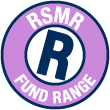



The Liontrust Sustainable Future managed fund range is a range of five multi-asset, long only investment portfolios that use the Sustainable Future investment process. The managers use a thematic approach to identify structural trends and invest in companies that will benefit from those trends. The team, led by Peter Michaelis, has been managing portfolio using this process for a number of years and has produced some strong long-term performance.
| Fund | Sector | Launch Date | Volatility Target |
|---|---|---|---|
| Sustainable Future Defensive | IA Mixed Investment 20-60% Shares | July 2014 | N/A |
| Sustainable Future Cautious | IA Mixed Investment 40-85% Shares | July 2014 | N/A |
| Sustainable Future Managed | IA Mixed Investment 40-85% Shares | February 2001 | N/A |
| Sustainable Future Managed Growth | IA Flexible Investment | February 2001 | N/A |
| Sustainable Future Global Growth | IA Global | February 2001 | N/A |
The Liontrust Sustainable Future funds are actively managed
The funds aim to deliver capital growth over the long term using the Sustainable Future process and investing in varying combinations of global equities, bonds and cash. The investment process uses a thematic approach to identify the key structural growth trends that will shape the global economy of the future and the fund managers then seek to invest in well run companies whose products and operations capitalise on these transformative changes.
The Liontrust Sustainable Investment team’s process starts with a thematic approach in identifying the key structural growth themes that will shape the global economy of the future and then invests in well-run companies whose products and operations capitalise on these transformative changes and, therefore, may benefit financially. The team believes identifying these powerful themes and investing in exposed companies can make for attractive and sustainable investments. Identifying emerging and long-term themes is often referred to as positive screening because of the team’s focus on what they want to own rather than just what to avoid. There are currently 3 headline, long-term trends being expressed in the process, each of which have a number of underlying themes:
The portfolios are invested across 6 main asset classes, UK equities, global (ex UK equities) infrastructure equities (Defensive and Cautious), corporate bonds, government bonds and cash and there are defined portfolio ranges for each of these asset classes. The overall philosophy for their equity investment process is that, in a fast changing world, they believe the companies that will survive and thrive are those which improve people’s quality of life, be it through medical, technological or educational advances; driving improvements in the efficiency with which we use increasingly scarce resources; and helping to build a more stable, resilient and prosperous economy. The process seeks to invest in high-quality organisations with robust business fundamentals, strong management and attractive valuations; adaptors and innovators capitalising on change, accessing new markets and opportunities and outperforming their competitors; and companies that are creating real and lasting value for shareholders and society, now and in the future. Companies are analysed through the Sustainability Matrix, which looks at a company’s core business and its sustainability product (impact on society and environment) and management quality (ESG structures, procedures, policies and practices). The overall philosophy in fixed income is to invest in a focused portfolio of corporate bonds that are attractively valued and take into consideration environmental, social and governance (ESG) factors by investing in companies that manage these exposures to minimise risk. They believe in a high conviction approach to ensure they develop a thorough understanding of their holdings and the factors that influence their long-term value. There are two main stages to the process: seeking to identify superior bonds, and constructing resilient portfolios. The overall process is overseen by the Advisory Committee, which can query companies held as being inappropriate and provide guidance as to the suitability of individual holdings. Should a company/holding no longer meet the fund’s SRI criteria then the manager has up to six months to sell the holding, although in practice this is often undertaken much more quickly.
Although the team that manages the Sustainable Future range of funds has only been at Liontrust since 2017 they were previously together at Alliance Trust (and before that Aviva Investors) managing a similar range of funds using the same process and are widely regarded as one of the leading SRI investment teams. The focus is on sustainability and companies that provide solutions to, or will benefit from, longer-term themes, so they are not traditional ethical funds, but will avoid sectors such as tobacco. These funds bring together the equity capabilities of the SRI team and the fixed income capabilities and experience of the Liontrust SF fixed income team who provide valuable input into the fixed income security selection, so the fund range represents a strong option for investors looking for a range of sustainable investment-based solutions.
Important Notice
This document is aimed at Investment Professionals only and should not be relied upon by Private Investors. Our comments and opinion are intended as general information only and do not constitute advice or recommendation. Information is sourced directly from fund managers and websites. Therefore, this information is as current as is available at the time of production.
Rayner Spencer Mills Research Limited is a limited company registered in England and Wales under Company. Registration Number 5227656. Registered Office: Number 20, Ryefield Business Park, Belton Road, Silsden, BD20 0EE. RSMR is a registered trademark.